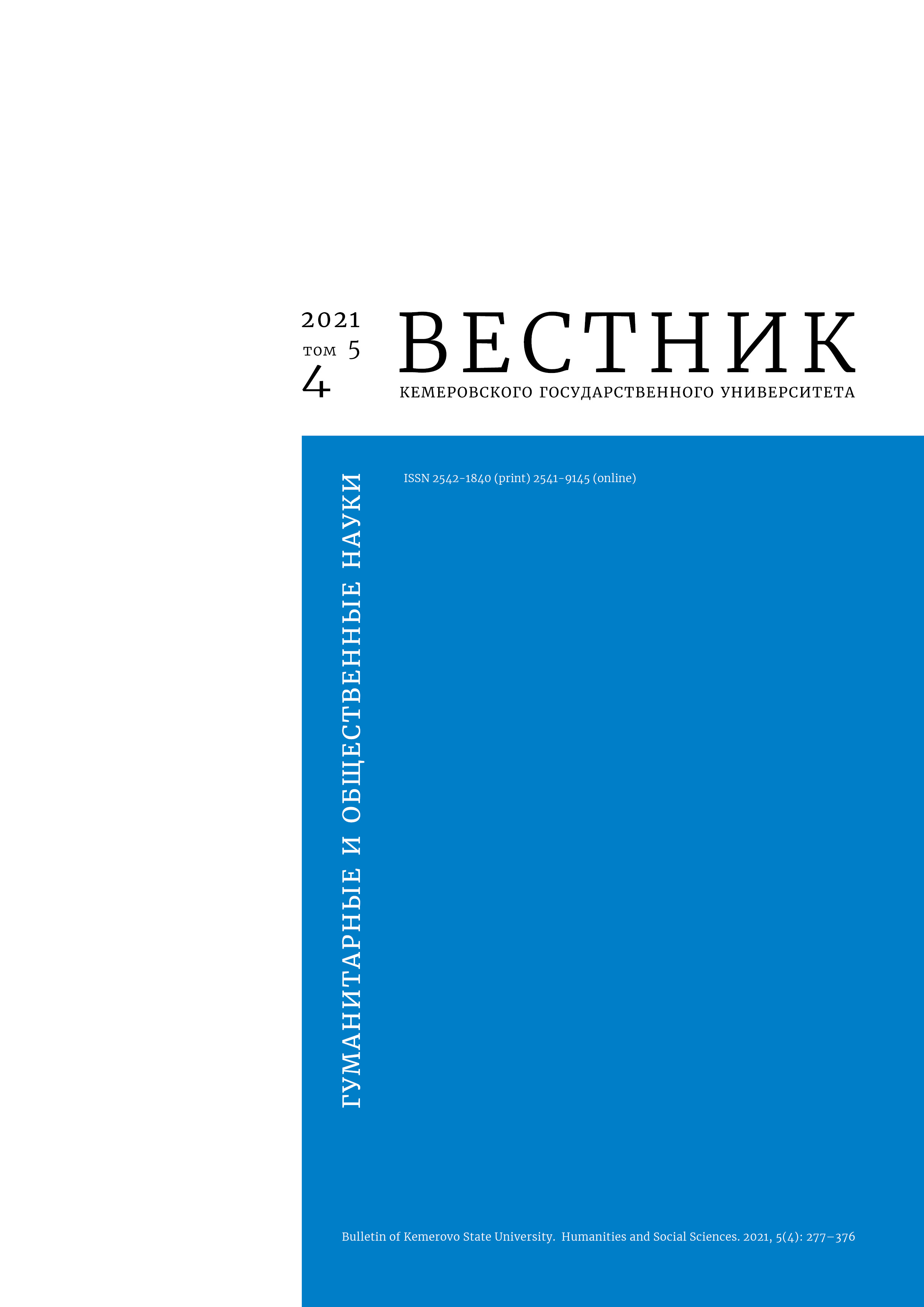Stavropol, Russian Federation
Stavropol, Russian Federation
UDC 37
The current epidemiological situation requires new distance learning techniques, and modular design seems to be a good systematic approach to the formation of standards for distance learning. Modular approach makes it possible to provide students with knowledge and develop competencies in the current challenging social conditions. The authors analyzed the distance learning technologies used by various academic organizations during the pandemic, as well as some distance learning platforms for advanced training courses. The analysis showed that modular competence-based distance learning technologies are widely introduced in the domestic academic environment. Modular academic disciplines consist of interrelated modules and presuppose a large amount of programmed self-learning. The article also contains an analysis of particular distance learning techniques and introduces new various technologies of blended learning. The materials can be used to develop new distance learning and blended courses.
modular learning, vocational education, curriculum, blended learning, forms of distance learning
1. Gordenko N. V. Formation of academic competencies in the contemporary Russian education. Stavropol: Fabula, 2012, 160. (In Russ.)
2. Davydova N. A. Using the integrate approach in the process of forming ICT-competence in students of pedagogical profiles of bachelor. Innovatsii v obrazovanii, 2019, (3): 112-121. (In Russ.)
3. Petlina E. M., Khatagova S. V. Informatization of education as a basic principle the formation of specialist skills. Innovatsii v obrazovanii, 2017, (3): 124-133. (In Russ.)
4. Akaev V. Kh., Tazbieva Z. M. About specific of transformation of the education system in Russia in the conditions of the modern pandemic. Vestnik GGNTU. Gumanitarnye i sotsial’noekonomicheskie nauki, 2020, 16(4): 50-54. (In Russ.) https://doi.org/10.34708/GSTOU.2020.15.85.006
5. Pshekher I. S., Eshkina N. I. Relevant issues of distance learning organization in the basic school. Socio-pedagogical issues of education and upbringing: Proc. All-Russian Sci.-Prac. Conf., Cheboksary, 25 Jun 2021. Cheboksary: Sreda, 2021, 107-109. (In Russ.)
6. Karamova A. I., Sharipova R. R. Application of distance technologies e-learning during the pandemic. Colloquium-journal, 2021, (3-1): 18-20. (In Russ.)
7. Diakonov K. P. Analysis of modern methods of distance learning in the design of distance learning systems. Young researcher: challenges and prospects: Proc. CCXV Intern. Sci.-Prac. Conf., Moscow, 7 Jun 2021. Moscow: Internauka, 2021, 511-514. (In Russ.)
8. Khalikov A. A., Musamedova K. A., Ibragimova O. A. Analysis of methods of distance learning and the introduction of distance learning in educational institutions. Vestnik nauchnykh konferentsii, 2017, (3-6): 171-173. (In Russ.)
9. Khizbullina R. Z., Galina G. K., Sultanova R. M., Valeeva A. I., Salemgaraeva L. R. Using distance learning as an innovative technology of the modern education system during the pandemic. CITISE, 2020, (4): 149-161. (In Russ.) https://doi.org/10.15350/2409-7616.2020.4.14
10. Petlina E. M., Nesterov D. S. The use of distance learning technology in educational organization. Innovative vectors of digitalization of economy and education in the regions of Russia: Proc. All-Russian Sci.-Prac. Conf., Stavropol, 10-11 Mar 2021. Stavropol: AGRUS, 2021, 600-604. (In Russ.)
11. Astakhova T. A. Opportunities and problems of distance learning forms: the choice of distance learning system. Upravlenie chelovecheskim potentsialom, 2012, (1): 56-63. (In Russ.)
12. Gevorkyants Zh. A. Modular approach to the construction of the educational process of modern college. Cand. Ped. Sci. Diss. Abstr. Vladikavkaz, 2005, 22. (In Russ.)
13. Khvorova S. V. The module approach as a condition of the preparation of a college graduate to interaction in the professional sphere. Pedagogical Education in Russia, 2011, (1): 274-278. (In Russ.)
14. Safarov M. V. Modular training as a technology and form of adult training. Bulletin of Bokhtar State University named after Nosir Khusrav. Series of Humanities and Economic Sciences, 2018, (1-2): 106-109. (In Taj.)
15. Umarova D. Z. Block-modular learning technology as a prospect for learning the quality of learning. Problemy sovremennoi nauki i obrazovaniia, 2019, (11-2): 58-60. (In Russ.)
16. Zakharova T. V., Basalaeva N. V. Modular learning technology: from theory to practice. Man and language in communicative space, 2019, (10): 175-180. (In Russ.)
17. Khutorova M. N. Model of managed self-learning of cursors on the basis of module training technology. Mathematical methods in engineering and technology - MMET, 2019, 12-3: 155-160. (In Russ.)
18. Shaposhnikov E. V., Gordenko D. V., Galvas A. V. Assessment of educational achievement subject education services (students) in a modern education. Sovremennye problemy nauki i obrazovaniia, 2015, (3). Available at: https://science-education.ru/ru/article/view?id=19525 (accessed 10 Sep 2021). (In Russ.)
19. Kholodkova I. V. Organization of distance learning based on the integration of face-to-face and distance forms of learning. Informatika i obrazovanie, 2009, (1): 87-88. (In Russ.)
20. Bykova A. M. Organization of distance learning using blended learning technology in the study of the topic "Statistical criteria". Best Student Research: Proc. II Intern. Sci.-Research Contest. Penza, 5 Jan 2021. Penza: Nauka i Prosveshchenie, 2021, 178-184. (In Russ.)


















